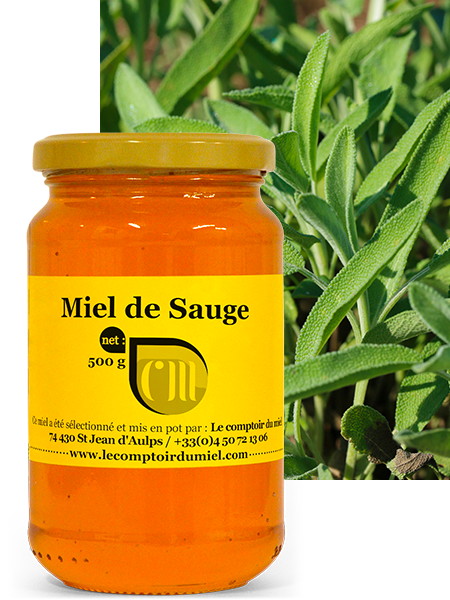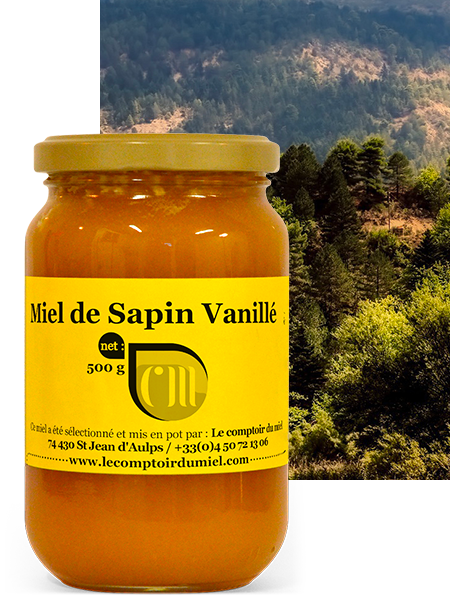The Peloponnese (island of Pelops) is part of Greece’s rich ecosystem, home to no less than seven and a half thousand varieties of plant. It’s an unspoilt land that thrives without the use of genetically modified organisms or intensive farming.
It’s a a country where beekeeping is a trans-generational skill! It’s in the heart of this splendid Balkan green setting, with its Aegean climate, that sage has developed, benefiting from all the beneficial aspects of a quality soil.
Sage honey, like the sage from which it is made, is perfect for use in use in cooking thanks to its mild, aromatic flavor. It is also a subtle accompaniment to certain cheeses at the end of a meal or during tastings, as well as meats.
Taste, flavour and preservation of sage honey:
This racy, finely-crystallized honey is unquestionably one of the best! It was already at the top 25 centuries ago in Greece. That’s an understatement! Its taste is mild, slightly sweet. It gives the impression of eating a candywithout appearing too sweet. It’s a honey that keeps very well.
Its scent is reminiscent of marzipan and calisson.
Its liquid appearance is smooth. Crystallization is very slow and fine-grained. This is particularly appreciated by children.
The properties of sage honey :
Sage honey has long been known for the many therapeutic properties it derives from its native plant. These properties have earned it the nickname “the healing plant”. Salvia” in Latin means “to heal”.
Its therapeutic properties include antiseptic, diuretic and febrifuge properties.
It also has an estrogenic action and acts as a hormone regulator (1).
(1)Angelo De Gubernatis, La mythologie des plantes: ou, Les légendes du règne végétal, vol. 2, C. Reinwald, 1882
Sage even seduced King Louis XIV, who made it his favorite herbal tea.
As for sage honey, it’s an antiseptic that helps treat certain ailments, particularly those of the urinary system and respiratory respiratory tract.
According to some, diluting sage honey in a glass of hot water helps to purify the blood.
Did you know?
Shamans consider sage as a sacred plant! The Romans also used it in their pharmacopoeia.

